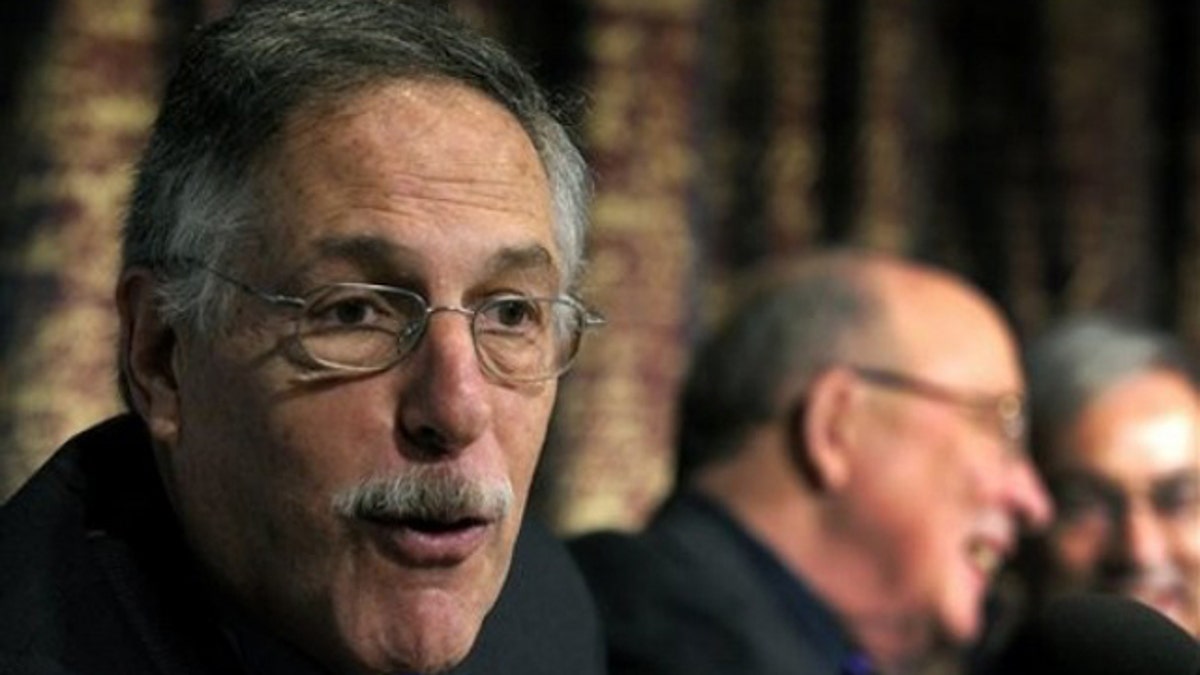
Nobel Prize winner Peter Diamond speaks during a press conference at The Royal Swedish Academy of Sciences on Dec. 7 in Stockholm. (AP)
Third time's the charm. That is, unless Republicans just gained six seats in the Senate.
President Obama could face an even steeper climb this year as he seeks -- for the third time since last spring -- to install MIT professor Peter Diamond on the Federal Reserve.
On paper, Diamond's nomination looks stronger than ever. After he was first nominated last April, and then re-nominated after that nomination stalled, Diamond was awarded the Nobel Prize for economics in October. The White House did its fair share of gloating at the time and tried to goad Republicans into clearing away the hurdles to his confirmation.
But it didn't work. And now Republicans have six more seats in the Senate, making confirmation for Diamond -- or any nominee Republicans have qualms with -- that much less likely.
After Obama on Wednesday re-nominated Diamond to the Fed's Board of Governors, one of Diamond's leading critics, Sen. Richard Shelby, R-Ala., indicated nothing had changed on the Senate side.
"Sen. Shelby remains firmly opposed to the nomination," Shelby spokesman Jonathan Graffeo said in an e-mail. Shelby is the ranking Republican on the Senate Banking Committee, which approved Diamond both times last year before he was held up in the full Senate.
The complaints about Diamond are not quite as straight-forward as those directed at other controversial Obama nominees. He's generally not assailed as a doctrinaire liberal or any of the other terms used by critics to dismiss a troublesome candidate.
Rather, Republicans questioned whether Diamond's expertise in tax policy and Social Security was good enough for a job steering monetary policy.
Shelby, in November, also claimed that the nomination would run afoul of a section of the Federal Reserve Act that says each member of the board must come from a different district. Shelby said that since another sitting board member was already from Massachusetts, the two could not serve at the same time. Shelby urged Obama to pick somebody from Ohio or Kentucky instead -- an area underrepresented on the Federal Reserve board.
To complicate matters for Diamond, the nominee also weighed in last year on the debate over extending the Bush-era tax cuts. He told Reuters in an interview that extending the tax cuts for the wealthy -- something that was eventually approved -- "would not be good policy."
The White House did not respond to a request for comment on the decision to re-nominate Diamond this year.
Press Secretary Robert Gibbs said in October that Diamond was being held up by a "partisan minority" looking to score "political points." He said the Nobel Committee had "heralded" Diamond for his work on unemployment and housing and other areas.
Diamond was awarded the prize along with two other colleagues for their research on hurdles that prevent buyers and sellers from matching up, particularly in the housing market, and that prevent employers and job seekers from doing the same.
But Shelby said last fall that while the Nobel Prize is significant, "the Royal Swedish Academy of Sciences does not determine who is qualified to serve on the Board of Governors of the Federal Reserve System."












































